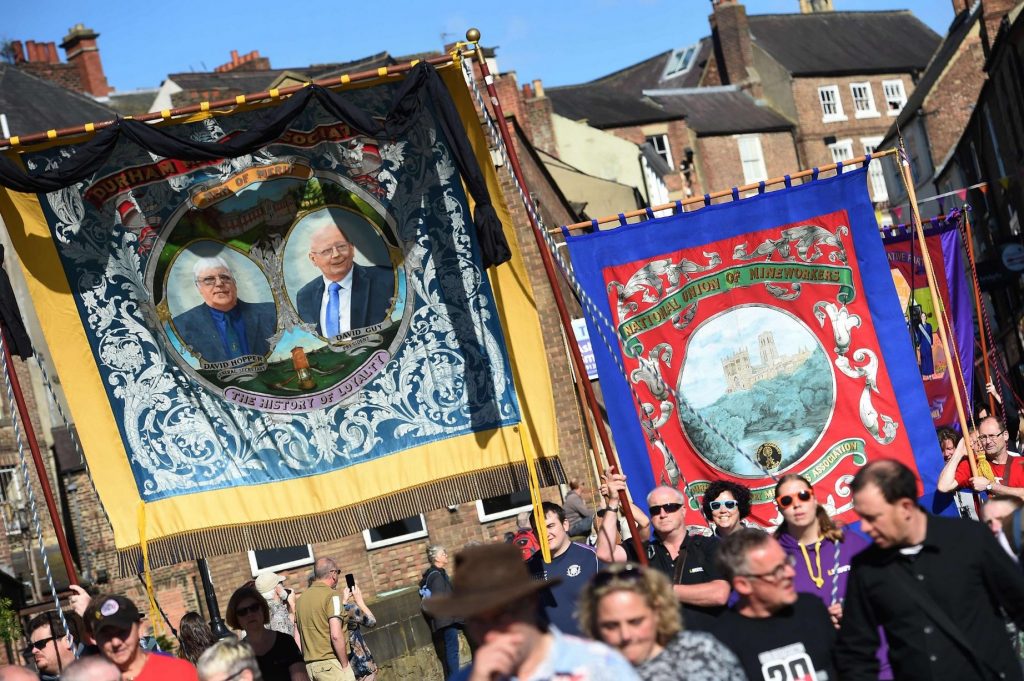The nature of trades unions under both capitalism and socialism is a question which has occupied many sections of the international Marxist movement since the beginning of the 20th century and before. The basics are, of course, obvious.
Trades unions are formed where workers unite to defend their immediate interests against those of capital. In fact, the very existence of trades unions is due to the basic contradiction between labour and capital. The primary motivation of capital is to increase the surplus value extracted from the workers.
The basic motivation of labour is to receive the maximum proportion of the value they create through a day’s labour. In spite of labour-saving devices, capital-saving devices, etc., ultimately, one can only be increased at the expense of the other. Therefore, there is a basic contradiction between their objective interests.
Capital, by the very nature of capitalist society, holds all the cards in this game and can hire and fire labour at will, whilst the working class exists precisely because it has no other way to earn a living except by selling its labour. The working class only has two weapons on its side, powerful though they are: its overwhelming numerical superiority and the ability to withdraw the labour upon which capital relies in order to create surplus value. This is where trades unions come in. They are the mechanism whereby workers can organise collectively to defend their interests using any means up to and including withdrawing their labour – the strike.
Due to the nature of the day-to-day struggle between labour and capital, the issues on which Trades Unions are organised tend to be the ‘economistic’ concerns of pay, terms and conditions, Labour rights, Health and Safety legislation. However, the basic contradiction between labour and capital can, of course, only be removed by changing the nature of society itself, and the mode of production specifically, to abolish exploitation and the extraction of surplus value from the workers. This is of course the struggle for socialism.
Trades unions, therefore, are formed on the basis of fighting for worker’s immediate aims, whereas the struggle for socialism is about realising their ultimate aim – an end to exploitation. This difference lays the basis for different forms of working class consciousness – basic trades union consciousness and socialist consciousness or true class consciousness.
One of the biggest questions for socialists and Communists has been how to build class consciousness amongst the mass of the working class. A lot of this, of course rests on how we relate to the most advanced sections of the working class, those who are already organised in trades unions and who already possess a basic level of trades union consciousness and understand on some level the contradiction between the interests of capital and their own interests, those of labour.
One of the most damaging contributions to this debate has been the ultra-left position that this trades union consciousness is itself a barrier to class consciousness, that those workers who are already organised are less able to understand the necessity for socialism than those who aren’t. This leads to the argument that the trades unions themselves are reactionary bodies which socialists should abstain from – forming ‘pure’ organisations of those who already accept the need for socialism.
Of course it is true that, while the dominant form of consciousness within the unions is basic trades unions consciousness, the leaderships of such unions will tend to be composed of reactionaries and their policies will, on the whole, be far short of those we may desire. This may also be self-reinforcing.
However, the solution cannot lie with isolating ourselves from the most advanced sections of the working class on the grounds that they are not ‘revolutionary’ enough. This can only lead to socialist organisations remaining isolated at the fringes of society. The solution, of course, has to lie with working to build class consciousness within these ‘reactionary’ trades unions.
Furthermore, this cannot simply be a case of winning key elections, denouncing prominent reactionaries and passing progressive policies, as important as all of these are. Our work must consist of actually changing the consciousness of the mass of ordinary workers within the unions. We cannot fall into the trap of thinking that the majority of members in these unions would agree with us if we could just defeat a few well-placed reactionaries.
The truth is that it takes political education – education of the type learnt through struggling for immediate goals – to change trade union consciousness into socialist consciousness. This, then, must be the nature of our work within the unions.
It is in this context that Lenin referred to the Trades Unions as a “school of Communism”.



